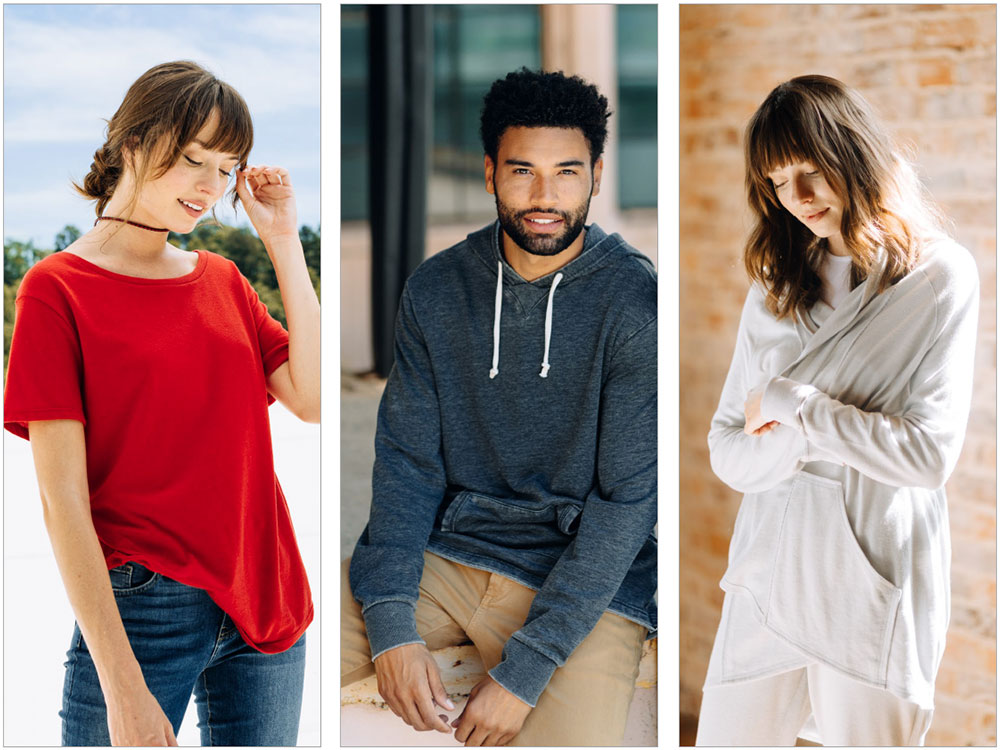Product Hub August 03, 2017
5 Keys to Selling Sustainable Apparel
Companies like Alternative work to meet consumer demand for sustainable options in the promotional garment marketplace.
It’s no coincidence that the demand for sustainability is growing at the same time more companies are building sustainability into their brand values and mission statements. The cultural shift toward sustainability has already started.
“Eco-friendly” and “green” aren’t niche words any longer – they’ve become mainstream markers for American shoppers who want to feel good about what they buy. Millennial consumers especially consider sustainability a key factor in their shopping decisions. With 50% of the workforce soon to be millennials, companies can’t ignore how relevant sustainability is to buyers.
But how do you know sustainability when you see it? According to Teka Long, Chief Operating Officer at Alternative Apparel, there are five key sustainability indicators distributors should understand.

1. The manufacturing processes
Learn how an apparel company makes its garments. Where are its factories located? What are its main processes? How do these processes affect the environment? How do the company’s facilities handle waste? The company should be candid about the environmental impact of each stage in the manufacturing process. Alternative relies on a variety of sustainable manufacturing processes, such as reclaimed water and water conserving washes, as well as biodegradable fabric softeners and natural enzymes for finishing.
2. The materials
Research the materials used to make the garment. Find out where the company sources them. Are these materials known to be eco-friendly, harmful to the environment, or somewhere in between? Does the company work with farmers or labs that source or create these materials in an eco-friendly manner? If the fabric contains a natural resource, do the farmers use sustainable practices to ensure there will be enough of this resource in the future?
Alternative designs and develops all of its fabrications from the yarn up – this means not buying fabric on the open market. The company sources the finest fiber and develops custom blends for softness, incorporating organic and recycled materials whenever possible.
Click here to read more.

Product Hub
Find the latest in quality products, must-know trends and fresh ideas for upcoming end-buyer campaigns.
